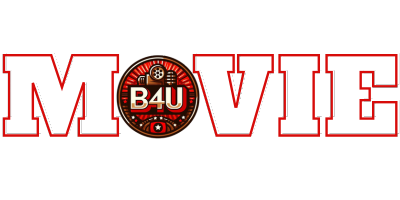Music by John Williams Review
Director Laurent Bouzereau (‘Five Came Back’) lovingly portrays the man who composed the beloved music for Jaws, Star Wars, and many other films.
Adulatory celebrity-driven advertisements masquerading as “documentaries” while joyfully and worshipfully portraying characters like Jim Henson, Mickey Mouse, and the collective Imagineering profession have been one of the most consistent elements of Disney+’s still-evolving brand.
Laurent Bouzereau’s 105-minute Music by John Williams, premiering at AFI Fest ahead of its Nov. 1 Disney+ debut, is the most creatively successful of this genre. Especially in the first hour, it’s a richly satisfying tribute to an unimpeachable cinematic legend who, one could easily argue, has become even more beloved than the iconic directors he collaborated with or the movie stars whose legends his themes and cues helped burnish.
Without a doubt, the word “John Williams” evokes a Pavlovian reaction that is more immediately visceral than that of “Steven Spielberg” or “Tom Hanks.” And more diverse, too! Knowing that any room full of a dozen viewers could instantly conjure up a dozen different associations with just the mention of Williams’ name, from the subaquatic rumble of a shark approaching to the orchestral Yahrzeit candle of Itzhak Perlman’s melancholy violin solos to the awe evoked by a first encounter with a resurrected dinosaur or an alien spacecraft, Bouzereau can capitalize on that psychological burrowing.
Without always digging quite as deeply as nerdier film fans might like, Music by John Williams honors the breadth of Williams’ impact and legacy, pushing every emotional button for an experience that will produce tears, edification, and a compulsive desire to immediately seek out 25 different Williams-scored features—many of which, not coincidentally, happen to be available on Disney+.
Bouzereau is able to use his extensive resume to gain perfect access here. His analytical Hollywood on-Hollywood documentaries have featured both glorified advertisements like Disney+’s Timeless Heroes: Indiana Jones & Harrison Ford and meaningful features like the Emmy-winning Five Came Back. Would Steven Spielberg feel so at ease spending time with a filmmaker who hadn’t collaborated with him on several behind-the-scenes films over the years? The greatest scenes here depict Williams and Spielberg merely hanging around discussing their collaborations, though it’s impossible to know for sure.
These scenes, along with video from an apparently in-depth retrospective panel with Spielberg and Williams, provide compelling evidence that this picture could have been much more straightforward than Bouzereau’s already uncomplicated approach has made it. Put Spielberg and Williams or Lucas and Williams in the same room, play a little piece of music for them to talk about, and then stand back and watch the magic happen. That is a large portion of Bouzereau’s work, to his credit.
In addition to Spielberg and Lucas, Bouzereau has assembled an intimidating roster of Williams’ filmmaking collaborators, including J.J. Abrams, Chris Columbus, Ron Howard, Kathleen Kennedy, and Frank Marshall, whose relationship with the maestro goes back to his own childhood. The lineup of fellow composers and musicians is at least equally impressive, from colleagues like Alan Silvestri and Thomas Newman to some of the most recognizable classical performers — Perlman, Yo-Yo Ma, Emanuel Ax, Anna-Sophie Mutter — and even Chris Martin of Coldplay and Branford Marsalis, whose giddy appreciation for the jazz bona fides of the Star Wars cantina band is contagious.
The first hour of John Williams’ music, which is its most impactful, is chronological. Making clever use of Williams’ nostalgic soundtrack from Spielberg’s most autobiographical film, The Fabelmans, Bouzereau charts a path from Williams’ musically oriented early years to his Hollywood debut as a jazz pianist, session musician, orchestrator, and eventually composer. It’s always useful to remember that Williams’s journey began with Gilligan’s Island and somehow extended all the way to Schindler’s List, albeit none of it is particularly revelatory.
The memory-driven reflections on Williams’ first collaborations with Spielberg, which brought him to work with Lucas, and the magical year in which Williams composed scores for Star Wars, Close Encounters and Black Sunday are methodical. But owing to the warmth of the storytelling and countless musical snippets, they never feel dry.
Sometimes, the documentary even feels rigorous. Thanks to his ample access to Spielberg’s home movies, Bouzereau can give us behind-the-scenes treats like footage from various scoring sessions and a few precious outtakes like music-free clips from Jaws and unused pieces from Star Wars. But I wish there were more moments like the one where Williams blends musical theory and rhetoric to explain why the five-note central theme of Close Encounters is more effective than the pages of additional five-note combinations he experimented with.
There could stand to be more actual discussion of the process from Williams and more effort from the assembled musicians to nerd out what makes Williams special. Instead, we get David Newman giving a rudimentary definition of “leitmotif” and seeming almost embarrassed at how fancy he’s getting. But only so much can be covered in a feature-length documentary.
It’s almost inevitable that some pieces of Williams’ body of work will either be completely ignored — count The Fury and 1941 among my favorite Williams scores that don’t warrant a mention — or given short shrift. I spent the recent Paris Olympiad thinking, not for the first time, about how Williams’ Olympics fanfare is one of his most essential compositions. Here, however, it’s presented as first among equals in a “Here are a bunch of other things Williams wrote for” segment.
A lot of effort is put into making a long-since-settled argument about Williams’ essential position as a cross-discipline titan of orchestral music in America when it’s been maybe 30 years since even the biggest snob would have contended that John Williams was anything other than a boon to this country’s classical music landscape. Williams’ own classical work is fully acknowledged. However, I would have loved more commentary from artists like Perlman and Ma on the different versions of him that they’ve worked with over the years or from Marsalis on the evidence of Williams’ earliest jazz work on subsequent scores like Catch Me If You Can. If the first hour is more point-by-point analysis, the last 45 minutes are a more nebulous celebration, and I’ll state a preference for the former.
Williams the man is somewhat of an afterthought because the focus of the movie is on Williams the artist, who is still conducting and writing at an unreasonably fast rate at the age of 92. Although there are some humorous remarks on the significance of golf to his current relationship with his daughter and a few heartbreaking tales about the passing of his first wife, Bouzereau and Williams decide that’s not what you’re looking for.
You’ll leave Music by John Williams with the impression that Williams has been duly honoured. If you need to celebrate even more, you may do so by seeing Jaws, Lincoln, Saving Private Ryan, and Sugarland Express all at once in one beautiful and lyrical evening.
This article was initially published on hollywoodreporter.com




